


Home Energy Water Work Economy Solution Politics Team Product Recycling Cars Ships Aircrafts Promotion
World Pollution Air Weather Violence Women Weapons Psychology Plants Animals Food Peace Faith Imprint
Animals
Lord forgive them, cause they do not know what they are eating
A Sow mess is it what is happen with the animal, it is a blame we never can can not make amends, there are moments where I am ashamed to call me human and I let this going on.

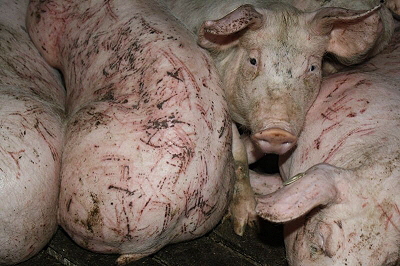
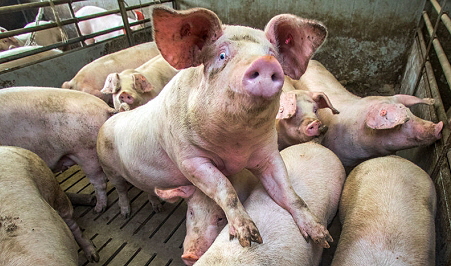
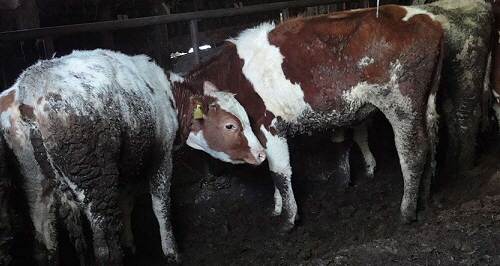
Mhmm, yummy, yummy ! From now on, always think about what could be on your plate.

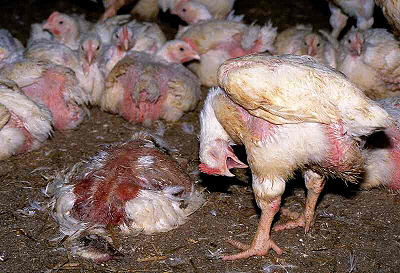
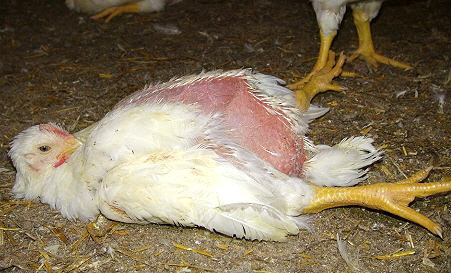
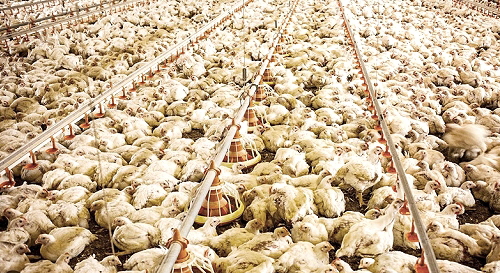
We live on and through animals and also vegetarians live through animals
It is a chain. If we break this chain then we do not know how it will react about that, because we have been dealing with it just a very short time. The existing species extinction will cause us still big problems. We can imagine that we could only live with a limited number of desired animals and treat them like the waste we export to other countries. But that will not work like that. For sure not. Aside from the disgust that the thought of such food creates, this type of food is of course poisonous. The animals are on the one hand supplied with cheap food and on the other pumped full of medication. Of course it can be also different, here an organic farm as a good example. (Picture below) This animals are obviously well. Until the slaughter they can enjoy a nice life, which unfortunately can not be say by the wild animals. That's what it's all about. If we go on like that, we should stop calling ourselves humanely.
This is how animal husbandry can be!
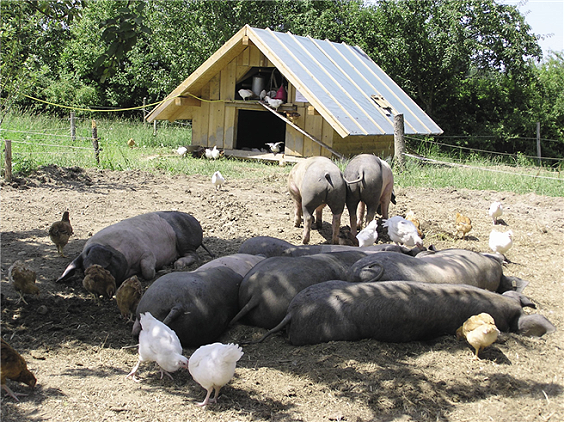
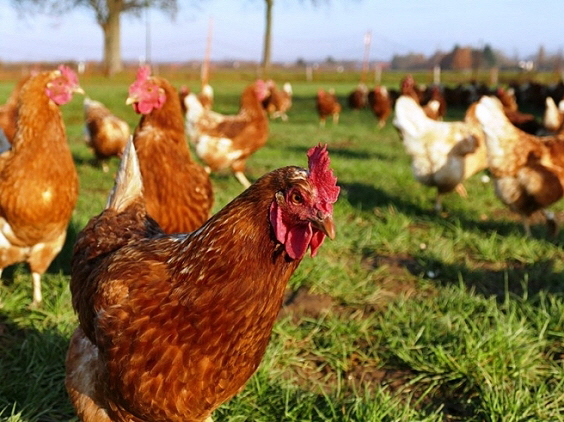
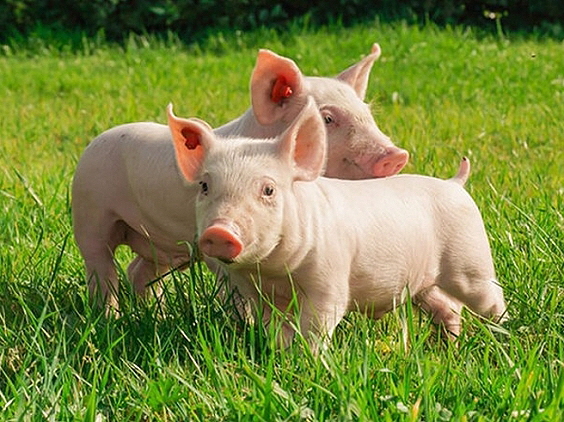
It's better to have something neat on the plate than to have a lot of unneat on the plate
Endangered species are species of which only a few individuals live in the wild. The World Conservation Union IUCN summarizes them on the so-called: "Red List of Endangered Species". Animals are divided into levels ranging from least concern (vulnerable) to critically endangered and extinct in the wild Wildlife extinct.
Why are animals at risk of extinction?
In many cases, the animals have lost their natural habitat. In many others hunting, poaching and trafficking of young animals is the reason. If there are only a few animals of a species, there is virtually no chance for the survival of the species. Even if the few living animals reproduce, the genetic material can not be mixed well. The result is hereditary diseases.
Ave, Caesar, morituri te salutant
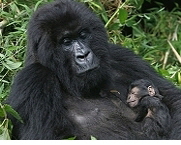
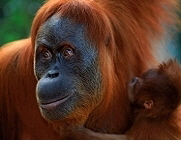
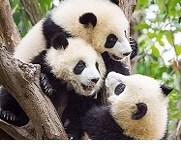
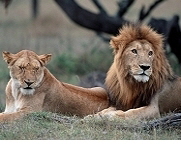
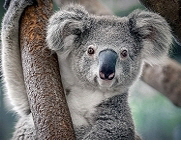
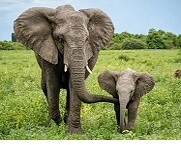
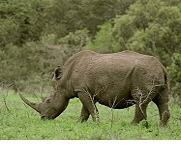
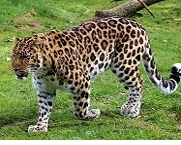
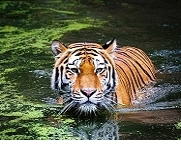
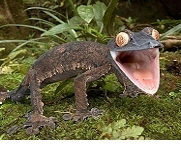
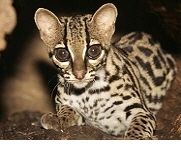
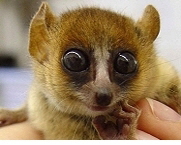
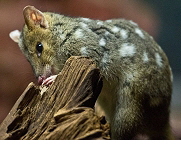
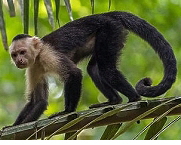
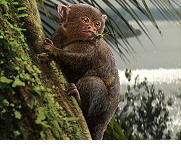
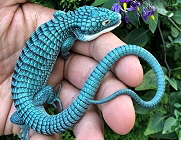
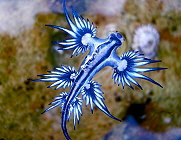
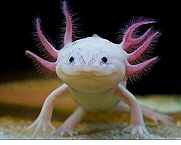
Amur Leopard, Mountain Grorilla, Hawksbill Turtle, Black Rhinoceros, Chinese Tiger, Sumatran Orangutan, Yangtze Finless Porpoise, Javan Rhinoceros, Sumatran Tiger, Cross River Gorilla, Sumatran Rhinoceros, Sumatran Elephant, Madagascan Beaked Turtle, Saola, Ashaninkacebus, Capuchin Monkey, Ajolote Mexicano, Gecko, Quoll, Indian elephant, African elephant, Mouse lemur, Lion, Margay...
... Homo sapiens
Ave, Caesar, morituri te salutant. The greeting of the doomed to their Caesar is well known
Less well known, however, is the fact that humans began exterminating wildlife at a young age. The extinction of the mammoth can also be traced back to Homo sapiens. At that time they were only a few million, and after initially declining by half, they had almost wiped themselves out. Homo sapiens saved themselves through the now emerging agriculture, ironically organic farming. The only difference to today was that the people of that time were really hungry and had to change from nomadism to sedentary farmers. Today's people, who are responsible for the extermination of animals, do it out of sheer greed and do not want to see it. But they want to see the animals, so hordes of tourists are now invading Africa. I doubt if that is the solution.
The market rules everything
In the spring of 2013, a survey from Bonn (Germany) caused a stir around the world:
Together with colleagues, the economist Armin Falk had around 1,000 students decide on the life of a mouse: They either received ten euros as a gift, but accepted that the mouse was killed - or they gave up the money and saved the life of the rodents in return. The result: 45 percent of the subjects opted for the ten euros and against the mouse. However, the second part of the experiment was particularly interesting: the students were divided into "sellers" and "buyers". The sellers decided the mouse's life; The buyers were each given 20 euros to negotiate with the sellers. If both sides came to a "deal" and agreed on how to divide the 20 euros among themselves, the mouse died - if the deal fell through, the mouse stayed alive. The subjects were able to take part in several rounds of negotiations with different "business partners" at the same time - just like in a "normal" market. The result: 75 percent opted for the money and against the life of the mouse. On average, the subjects were willing to accept the death of an animal for 6.40 euros. In other words, in the market situation there were even fewer moral considerations. Incidentally, the mice were actually killed - and only at the end did the participants learn that they were animals from animal experiments that were "superfluous" and would have been killed anyway, which in turn is already antisocial. In a real social market economy, you could save the animals. And we wouldn't have to torture animals before we eat them.
To the top ![]()
![]()
![]()
Home Energy Water Work Economy Solution Politics Team Product Recycling Cars Ships Aircrafts Promotion
World Pollution Air Weather Violence Women Weapons Psychology Plants Animals Food Peace Faith Imprint